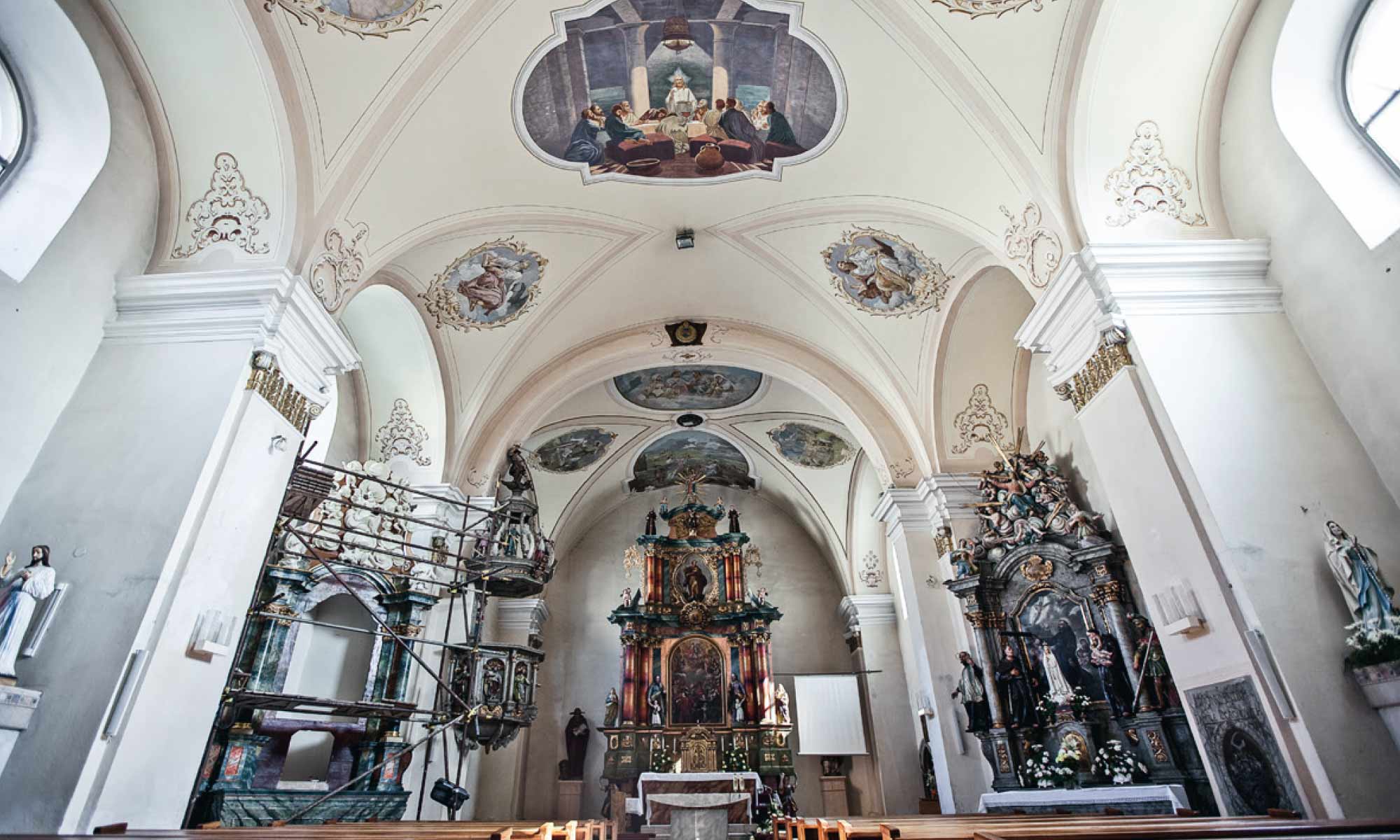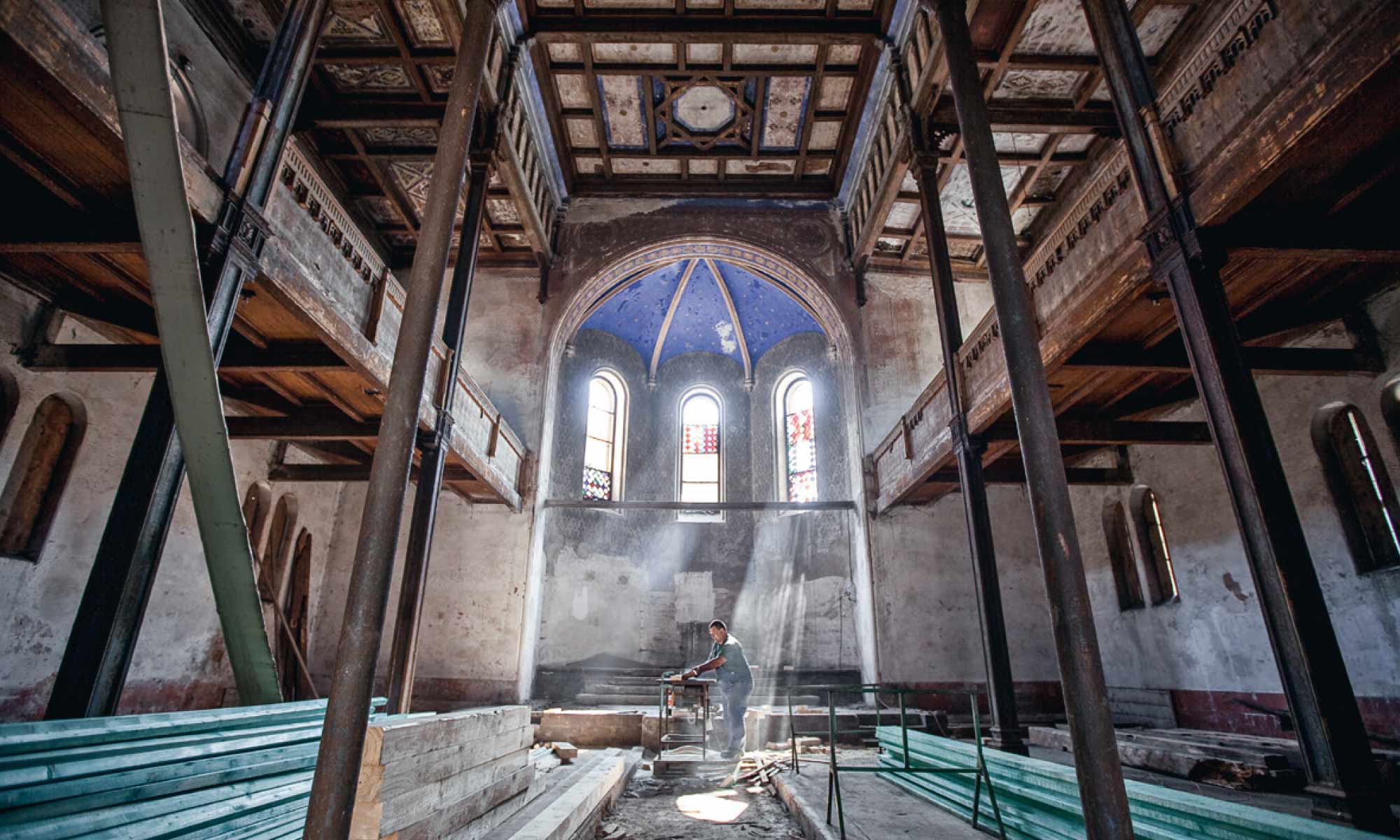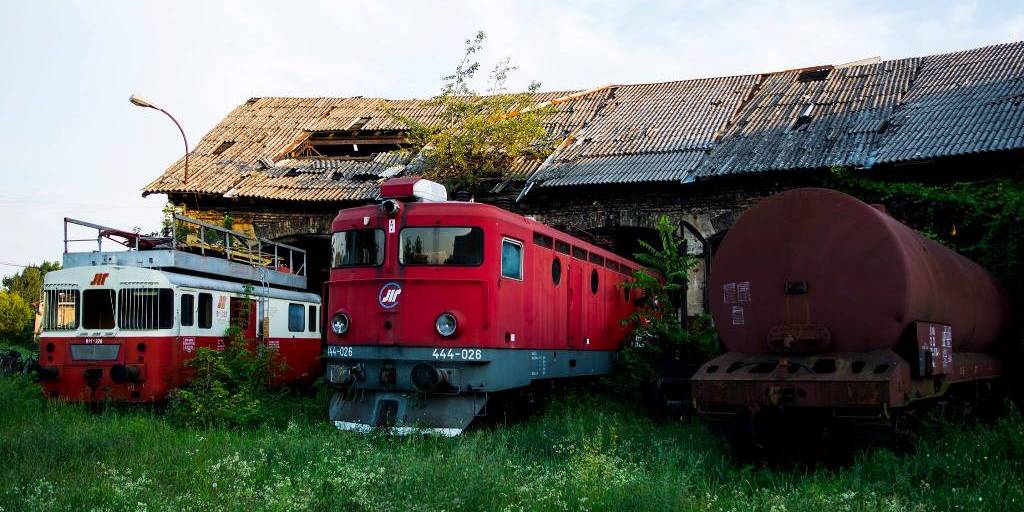Two houses of one gentleman
Churches and synagogues in Slovakia
Photographs by Monika & Ľubo Stacho
29.06. - 07.08.2021 / Ev. Reglerkirche, Erfurt

At a glance, the photographs by Monika and Ľubo Stacho, taken between 2008 and 2011, reveal the discrepancy between the possibility of actively living faith and its destruction. The shape of the diptych allows the motifs to enter into conversation with one another. They represent two sides of a belief in a common God: On the one hand, the Christian one, which – even if limited during the time of socialism – was usually able to offer its believers a representative house without interruption. On the other hand, the Jewish one: destroyed, perished, the places of worship misused and misused.
In the original sense of the word, these diptychs function as devotional pictures, as an impetus to reflect on the loss that Europe’s spiritual culture suffered as a result of the Shoah. They are a reminder to recognize and visualize the commonalities – the belief in one God – who unites the three world religions Judaism, Christianity and Islam. The exhibition also shows the historical diversity of the country, which used to be trilingual, Slovak, Hungarian and German. It is reflected in the numerous UNESCO World Heritage Sites in the region. These cultural artefacts should be preserved and revived for future generations.

Monika and Ľubo Stacho work in the fields of artistic photography and documentary film. In their works they often address the multicultural and especially Jewish history of Slovakia. Ľubo Stacho, b. 1953, founded the photography course at the Academy of Fine Arts in Bratislava in 1990. He has received several international prizes and awards and has worked as a visiting professor at universities in Belgium, the Netherlands and Great Britain. Solo exhibitions have been shown in Pittsburgh, Vienna, Tel Aviv, Tokyo and Berlin, among others. His photos can be found in many collections around the world. Monika Stacho, b. 1977, teaches photography at the Faculty of Architecture of the Slovak Technical University in Bratislava.
The German Cultural Forum for Eastern Europe is committed to conveying German culture and history of Eastern Europe. The focus is on all those regions in which Germans have lived or are still living today. Together with partners from home and abroad, the Kulturforum organizes exhibitions and events. His publishing house publishes non-fiction books, cultural travel guides and the magazines Blickwechsel and Kulturkorrespondenz eastern Europe. The website of the Kulturforum provides information about publications, projects and developments within the subject area.
xxxx
German Cultural Forum for Eastern Europe
Berliner Strasse 135 | House K1
14467 Potsdam
Tel. + 49(0)3331/20098-0
deutsches@kulturforum.info
www.kulturforum.info
Under the patronage of the Thuringian Minister for Culture, Federal and European Affairs and Commissioner for Jewish Life in Thuringia and the Fight against Anti-Semitism


